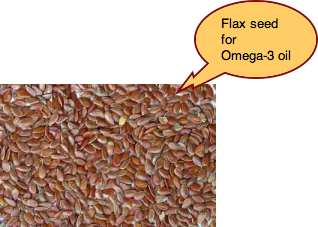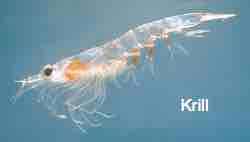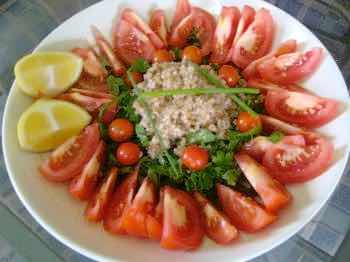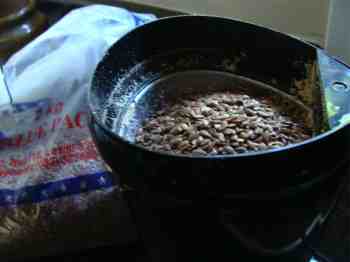- Bernard Preston homepage
- What is a Cyan Zone?
- Anti-inflammatory Omega 3
Anti-inflammatory omega 3
Anti-inflammatory omega 3 notes persistent reports that something in flax and nuts kills arthralgia; most seed oils consumed in the Western diet are high in ω6 which in excess makes muscles, joints and blood vessels angry.
But omega-3 fatty acids are especially important for cardiovascular health, prevention of dementia and even our eyes.
There are three of these important omega-3 fatty acids; two come from fish and the third from plants such as flax seed.
Quick guide
Owing to the consumption of large amounts of seed oils in the Western diet, especially from the sunflower which has an omega 6 to 3 ratio of 200 to 1, arachidonic acid is maintained at raised cellular levels; it provides the ingredients for highly pro-inflammatory substances in the body.
However
let's acknowledge that there is a vast difference between cold-pressed
sunflower oil, for example and that which has been solvent extracted at
very high temperatures. The former is excellent but hard to get; rather
spread a tablespoon of the seeds over your salad.
And some scientists deny that omega-6 fats are inflammatory at all[1].
"Omega-3 fatty acids are required to help all our cells to function correctly. They are essential nutrients that our bodies cannot synthesise adequately; we have to get them from our food or supplements."
- Johns Hopkins Medical Centre

The end result of this high omega-6 diet is oedema and pain; joint and muscle stiffness too. Atherosclerosis, asthma and tumours are fingered as well; and autoimmune diseases such as lupus.
In short there is a strong body of the scientific community that believes we get more than enough seed oils and we shouldn't be actively trying to take extra. In fact that we ought to be reducing those that are highly-processed; as in that extracted from flax, soybeans and sunflowers.
It's complex. Freshly-ground flax seeds are a wonderful source of omega 3; but the oil which is solvent extracted at high temperatures is an ultra processed supplement.
NSAID drugs inhibit the production of pro-inflammatory substances[4] which are derived from the dietary omega 6 fat called arachidonic acid.
Prevention of the conversion of omega-6 arachidonic acid to prostaglandins and cytokines is the aim of the medicine; would it not be better simply to limit these inflammatory oils in the diet? However bakers love to add them to their confectioneries for improved mouthfeel.
Non steroidal anti-inflammatory drugs taken long term have serious side effects. Are there alternatives?
Freshly-ground flax seed
Freshly ground flax seed, nuts and fatty fish are the best way to correct
this hopelessly out of sync 6 to anti-inflammatory omega 3 ratio in the modern "industrial" diet; and less ultra processed sunflower oil.
Omega 6 and the Western diet
Canola oil has a healthy omega 6 to 3 ratio of 2 to 1 but has other issues which are fully discussed on Wikipedia. Notably that this rape seed is fully genetically-modified to reduce the high levels of a known toxin, erucic acid to 2 percent which is considered to be safe; thought but not for certain.
Virtually all seed oils, including both canola and sunflower are solvent-extracted and contain traces of xylene; and because of the high temperature methods used, trans fatty acids are formed.
Since we get plenty of omega-6 in our diets, it is best in general to avoid extra seed oils especially in salad dressings.
Use cold-pressed olive oil rather.
"In a prospective cohort study of 92 383 adults observed over nearly thirty years, the consumption of more than 7 g/d (1.5tsp) of olive oil was associated with a 28% lower risk of dementia-related death compared with never or rarely eating it, irrespective of diet quality."
- JAMA open network
Anti-inflammatory omega 3
Omega-3 consists of three essential fatty acids containing a varying number of carbon atoms.
- Alpha Linolenic Acid (ALA) - 18 carbons
- Eicosa Pentaenoic Acid (EPA) - 20 carbons
- Doco Hexaenoic Acid (DHA) - 22 carbons
1. Alpha Linolenic Acid (ALA)
Alpha linolenic acid is found in large amounts (50 to 70 percent) in flaxseed oil.
It is also known as Linseed oil.
Flax seed is grown in large quantities but most of it is used in animal feed; or for industrial purposes. Is it not odd that anti-inflammatory omega 3 is promoted for animals before us? Is it more important that cows and pigs do not get arthritis and have heart attacks than humans?
The best flaxseed oil for human consumption is first cold-pressed.
Although Eicosa Pentaenoic Acid is also an "essential" omega-3, ALA can be converted in the body to EPA. However, many nutrients and minerals are required for this reaction to occur readily; they are in short supply from the modern industrial diet.
This conversion is limited in those folk refusing to eat foods rich in many coloured fruits, vegetables and whole grains.
Less concentrated but still significant amounts of alpha linolenic-acid are found in pecans and avocados. It's also in many plants in the garden such as purslane, a wonderful herb for our salads.
2. Eicosa-Pentaenoic Acid (EPA) in fish oil
Fish is the main source of EPA; salmon and mackerel which are
found in cold waters.
Here's the interesting part. Pro-inflammatory prostaglandins and cytokines are eicosanoids.
Notice the "eicosa" in EPA.
Researchers James et al reporting to the American Society for Clinical Nutrition have shown that EPA acts as a competitive inhibitor of Arachidonic Acid in its conversion to the pro-inflammatory prostaglandin and cytokine eicosanoids.
They report that decreased synthesis (up to 90%) of these pro-inflammatory substances has been observed when fish or flaxseed oil are added to the diets of patients suffering from rheumatoid arthritis.
Another popular source of omega-3 is krill. They are tiny shelled sea creatures that make up a large part of the diet of whales and many species of fish.

3. Docosa-Hexaenoic Acid (DHA)
About sixty percent of the brain is fat and fully half is docosa-hexaenoic acid. In particular, the Optic nerve is considered an extension of the CNS; together with the retina it has the highest concentration of DHA in the body.
Of interest is that fish, like us cannot actually make omega-3 fatty acids. They too must consume them in their diet; from algae, seaweeds and krill in the main.
Vegetarians who have no desire to eat fish or swallow these capsules, for their DHA can in fact find seaweed and algae products on the market; they are rich in omega-3 oils.
General advice is to join the Chinese and eat seaweed regularly. Unfortunately we are ruining our oceans too, so I am not convinced that still makes good sense; it's probably contaminated.
Are there any adverse effects from taking large quantities of omega-3? Consumption of more than 3g of EPA and DHA has, according to the FDA, the potential of serious risks including haemorrhagic stroke.
Of importance is that even a generous helping of salmon, say 100g contains only a total of 2.5g of PUFAs, in the main made up of omega-3.
Obtaining your omega-3 from natural sources, unlike swallowing a large number of fish oil capsules remains safe.
Plus of course you get the very nutritious fish-protein and the other many unknown compounds found in all whole foods, as compared to pills from a bottle.
Overall recommendations
- Freshly-ground flaxseeds for ALA
- Fatty fish or oil for EPA and DHA
Do your best to avoid anti-inflammatory drugs; let your flaxseed and cold water fish be your medicine.

Omega-3 fatty acids so readily oxidised
One of the great difficulties is that omega-3 fatty acids become rancid as soon as they are exposed to air. Fish (DHA and EPA), like house guests go off after three days.
Flaxseed oil too is so readily oxidised that it releases large amounts of heat so that it is dangerous to leave old rags soaked in this
omega-3 (ALA) lying around. They literally can ignite spontaneously; rather grind
and enjoy your own.
- Fresh fish if possible and do your homework before purchasing the capsules.
- Eat avocados within half an hour of peeling.
- Crack your own pecans and walnuts.
- Ground flaxseed vs oil
Oleocanthal in olive oil
Oleocanthal is a natural phytonutrient found in olives and the extra virgin oil. By acting as a Cox inhibitor, it too has anti-inflammatory effects but without upsetting the stomach.
Because olive oil has no omega-six fatty acids, it also does not raise the ω6/3 ratio.
Use olive oil daily for its anti-inflammatory effect; perhaps make delicious and nutritious pate for your snacks. It's so simple.
Free range eggs
Some researchers have found that true free range eggs have triple the anti-inflammatory omega 3 as compared to those from caged birds.
The British call them "proper eggs." Truth is, they are very difficult to find. A farmer who allows his birds to wander openly for just five minutes can legally call them free-range.
But researchers at an American university found that true free range eggs have even higher levels of omega-3. A solution for the gardener with a large property is the use of one of these chicken tractor designs.
In practice however, we found that it is only your small seedlings, green beans and kale that you really need to protect from the chickens. They have a particular need for high-protein legumes in order to lay the perfect egg; and carotenoids called lutein and zeaxanthin for their eyesight. Otherwise they like us would go blind[2].
Lutein and zeaxanthin are the two carotenes that protect the cones in the eye from damaging high-frequency radiation that is the cause of macular degeneration. Kale, spinach and parsley are the best sources; and free range eggs too, of course.
If you have a large garden, and suffer from generalised inflammation in your body, then "proper" free-range eggs are part of the solution. In the Midlands of KZN you can purchase them from Reko Hilton farmers' market.
Improper eggs come from hens raised in barns and cages; anti-inflammatory omega 3 is essential in their diet as in ours. Since they are usually slaughtered when less than a year old, arthritis never becomes a problem for them.
Purslane plant is another good source of omega-3; the hens will eat it sometimes and we can too. It has a peppery flavour and is a great favourite in some areas of the world.
Heart failure and plant-based omega 3
Most of the research on the benefits of omega 3 for those suffering from heart failure have been done with the two compounds EPA and DHA found in fatty fish; however scientists have now discovered that plant-based sources also give a 39% lower risk of death or admission to hospital[3]. That too is massive.
Purslane, walnuts and freshly-ground flaxseed are three common sources of Alpha Linolenic Acid, the omega 3 phytonutrient in plants.
In short all three of the omega-3 fatty acids are vital for our wellness; get them from your food.
New research about triglycerides
Your triglycerides are raised; both you and your GP are concerned about your heart. The research is unequivocal; OM3-FA will reduce TG levels by 40%[5]. Doctors knows that their patients are not good at adhering to lifestyle changes; eating more cold water fish, freshly ground flaxseed and walnuts regularly. So they recommend you take a medication which is a synthetic omega 3.
What should you do? First an internet search for the research is advisable. You will find that synthetic omega-3 acid ethyl esters cause a significant risk of atrial fibrillation[6]. Let your food be your medicine would be Hippocrates' advice.
 So easy to grind flax seeds
So easy to grind flax seedsMultiple sclerosis and fish consumption
Researchers reporting in the Journal of Neurology, Surgery and Psychiatry have shown that higher consumption of fish inhibits the progression of disability in those suffering from MS; by 44% compared to those eating the least seafood.
They speculate that it is due to the anti-inflammatory and neuroprotective properties of omega 3; and an amino acid called taurine. And may also be mediated through favourable changes in the microbiota; the friendly bugs found in those with a happy tum.
- No need to avoid healthy omega-6 fats
- Lutein macular-degeneration
- A diet rich in plant-based omega-3 is associated with better outcomes in heart failure patients
- Prostaglandins and cytokines
- The effect of omega-3 fatty acids on lipid profile in patients with hypertriglyceridemia
- EMA Warns That Omega-3-Acid Ethyl Esters May Cause AF
When browsing use right click and Open Link in New Tab, or you may get a bad gateway signal.
Newsletter
Our newsletter is entitled "create a cyan zone" at your home, preserving both yourself and Mother Earth for future generations; and the family too, of course. We promise not to spam you with daily emails promoting various products. You may get an occasional nudge to buy one of my books.
Here are the back issues.
- Lifestyle and ideal body weight
- What are ultra-processed foods?
- Investing in long-term health
- Diseases from plastic exposure
- Intensive lifestyle management for obesity has limited value
- A world largely devoid of Parkinson's Disease
- The impact of friendly bacteria in the tum on the prevention of cancer
- There's a hole in the bucket
- Everyone is talking about weight loss drugs
- Pull the sweet tooth
- If you suffer from heartburn plant a susu
- Refined maize meal and stunting
- Should agriculture and industry get priority for water and electricity?
- Nature is calling
- Mill your own flour
- Bake your own sourdough bread
- Microplastics from our water
- Alternative types of water storage
- Wear your clothes out
- Comfort foods
- Create a bee-friendly environment
- Go to bed slightly hungry
- Keep bees
- Blue zone folk are religious
- Reduce plastic waste
- Family is important
- What can go in compost?
- Grow broad beans for longevity
- Harvest and store sunshine
- Blue zone exercise
- Harvest and store your rainwater
- Create a cyan zone at your home
Did you find this page interesting? How about forwarding it to a friendly book or food junkie? Better still, a social media tick would help.
- Bernard Preston homepage
- What is a Cyan Zone?
- Anti-inflammatory Omega 3
Address:
56 Groenekloof Rd,
Hilton, KZN
South Africa
Website:
https://www.bernard-preston.com